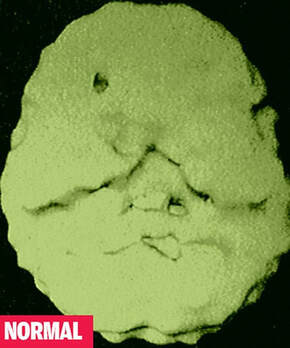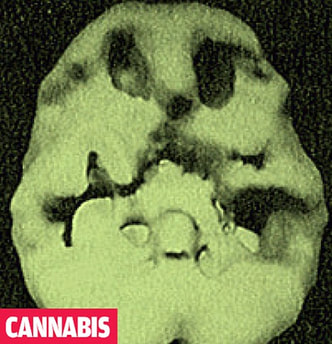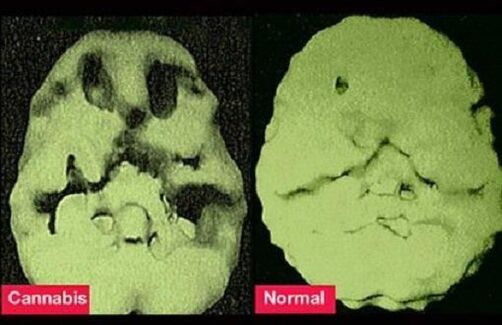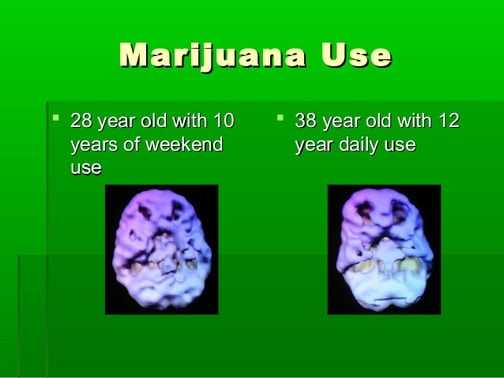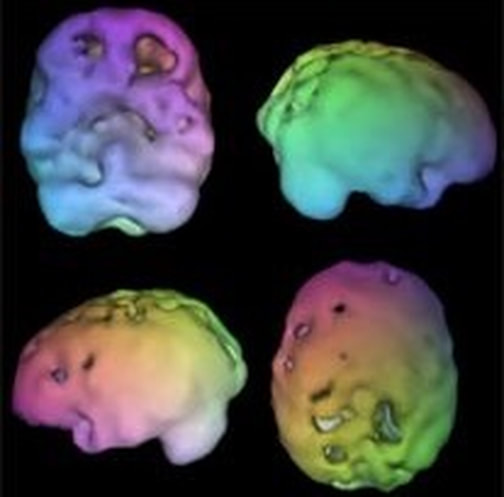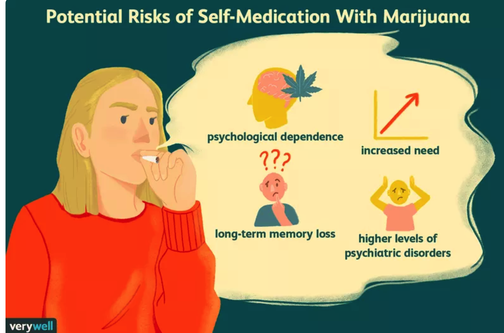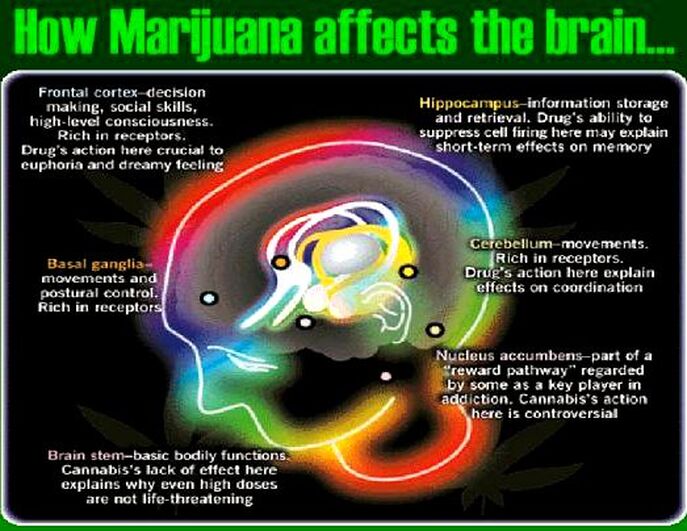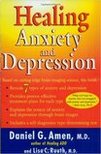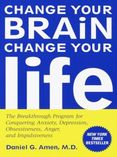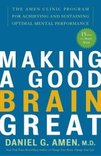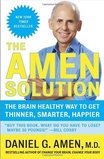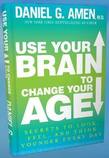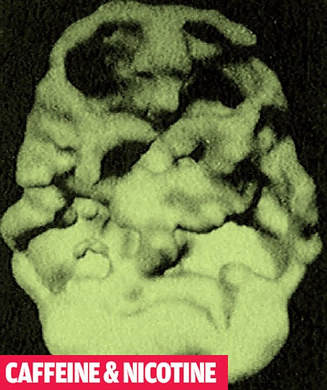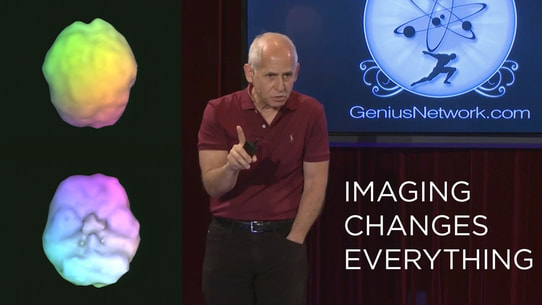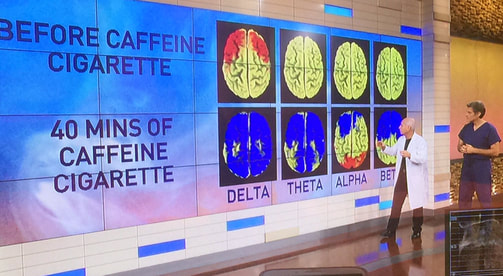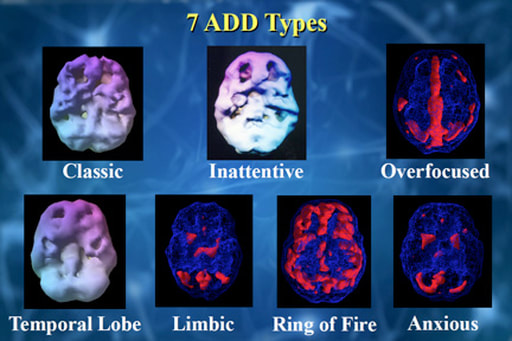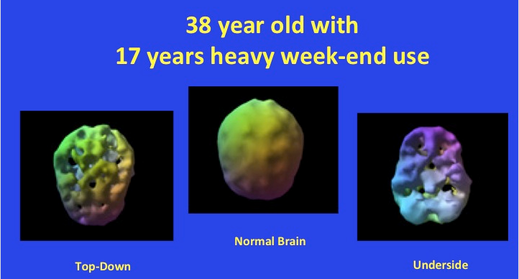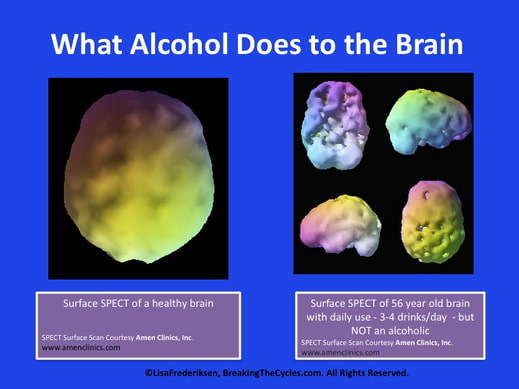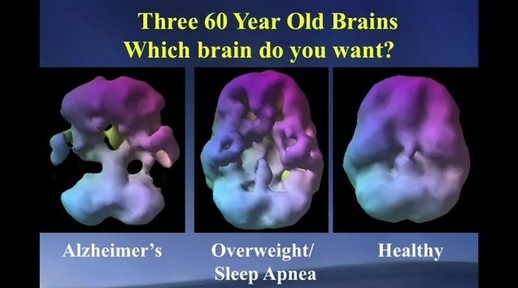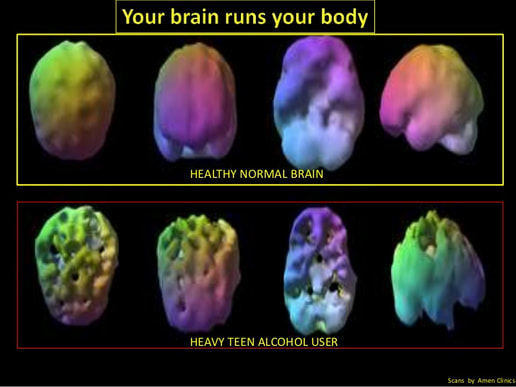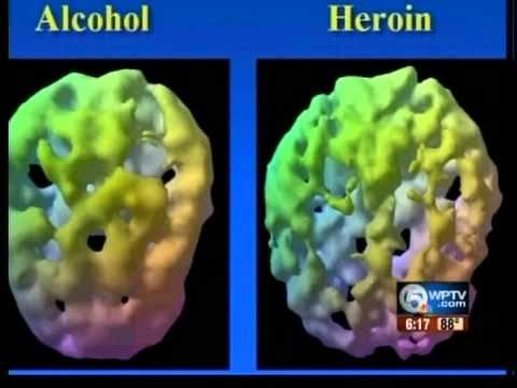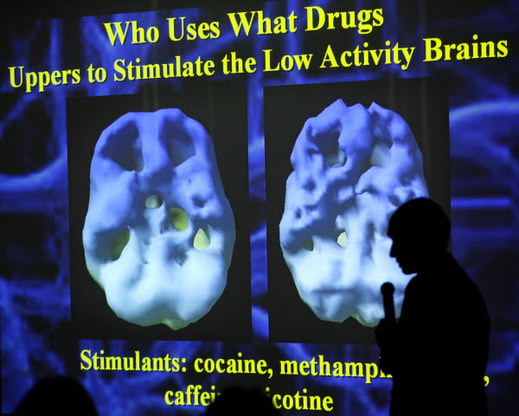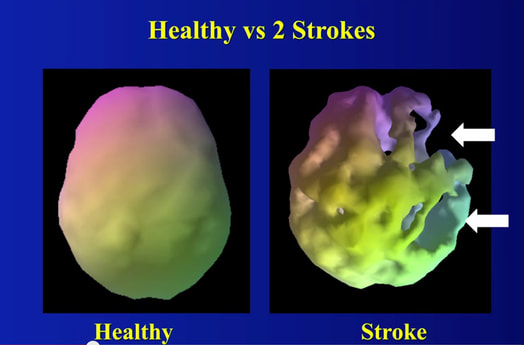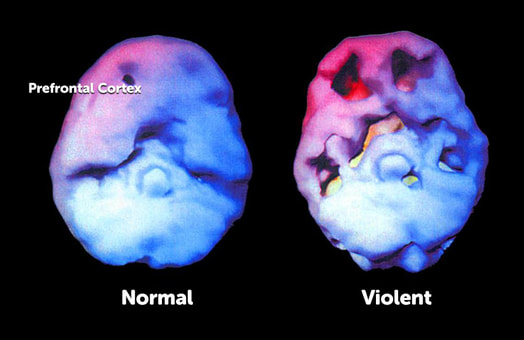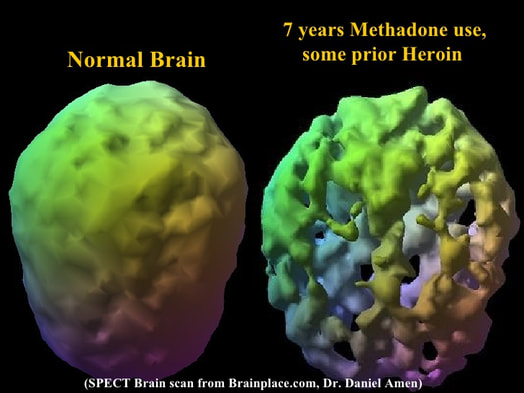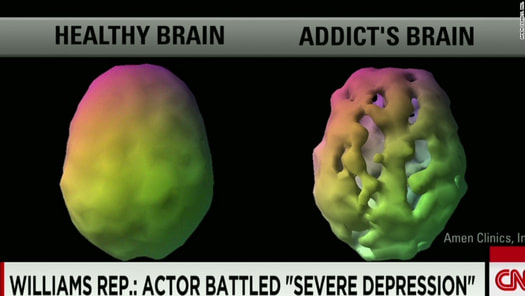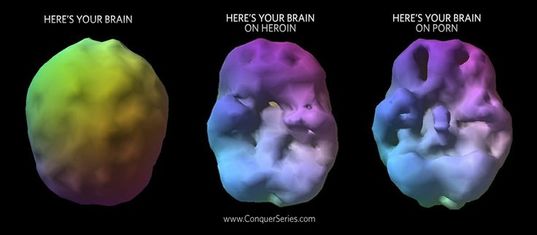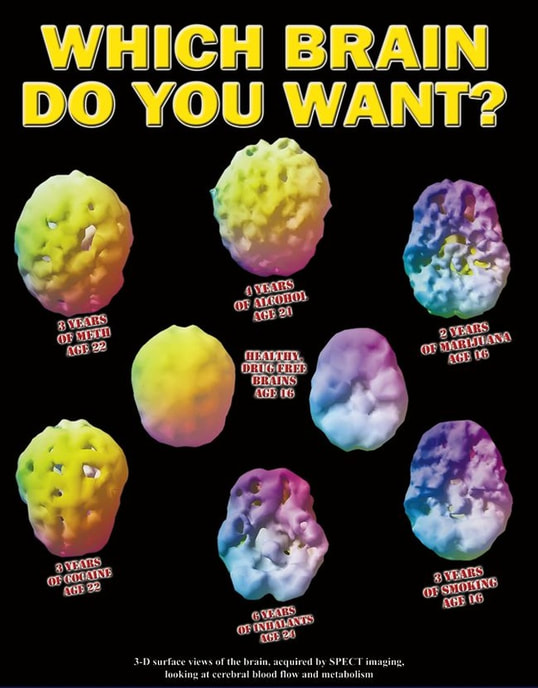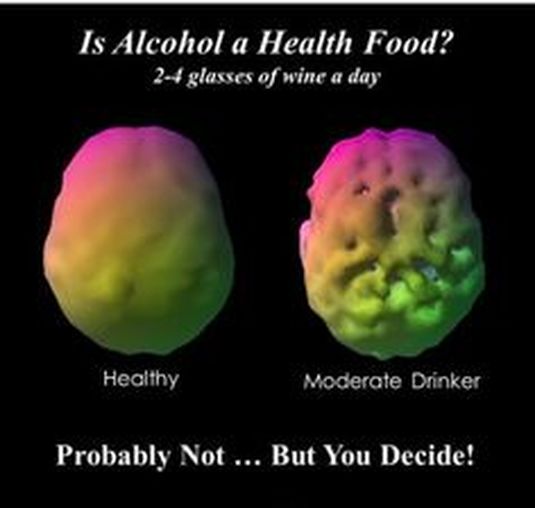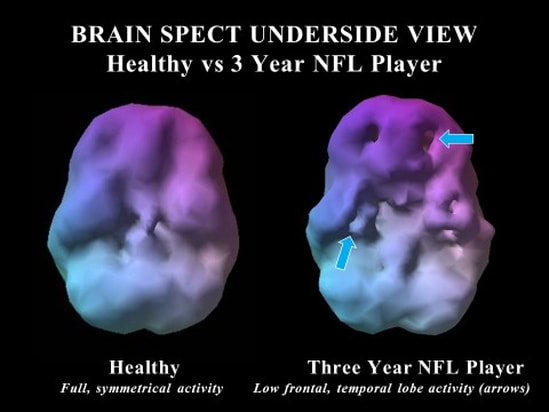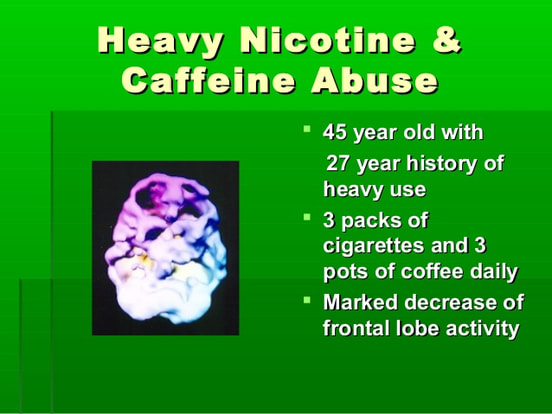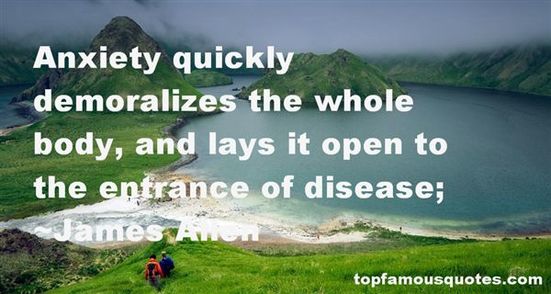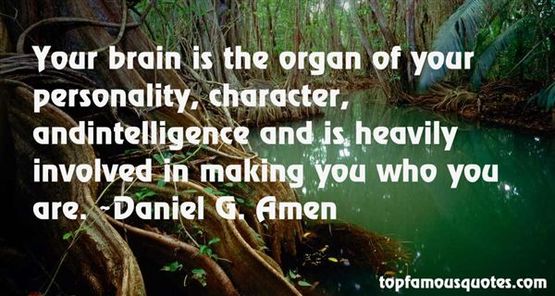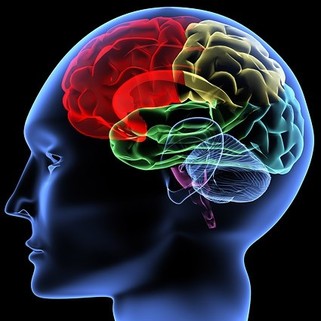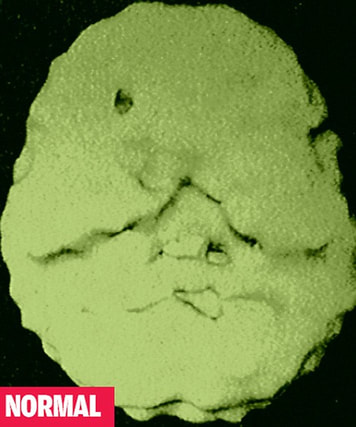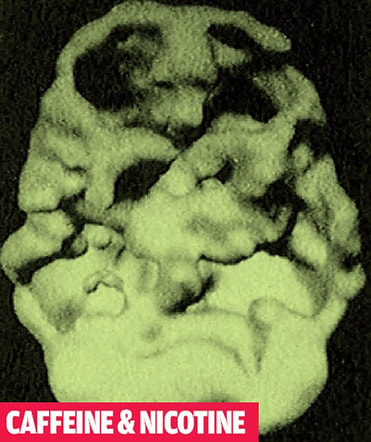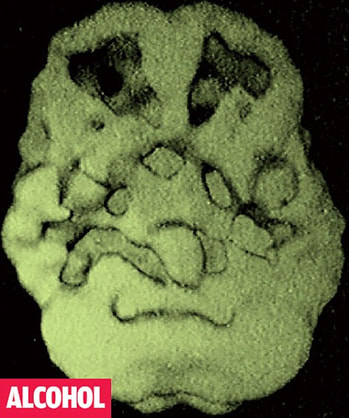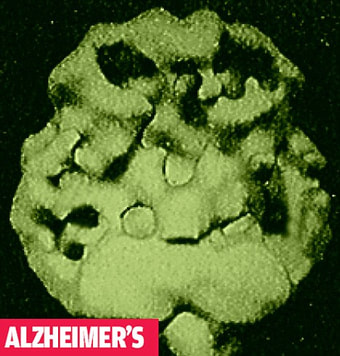🌸
Like other recreational drugs,
cannabis squeezes down blood flow,
leading to brain cell damage ...
🌸
This patient was a young boy who had used marijuana every day for two years.
The scan came as a great shock to him and his father,
who was a doctor and strongly opposed to recreational drugs.
🌸
Like other recreational drugs,
cannabis squeezes down blood flow,
leading to brain cell damage ...
🌸
This patient was a young boy who had used marijuana every day for two years.
The scan came as a great shock to him and his father,
who was a doctor and strongly opposed to recreational drugs.
🌸
🌸
Brain Pictures from Dr. Daniel G. Amen.
🌸
Neuroscientist and Psychiatrist Dr. Daniel G. Amen,
who is professor of psychiatry and human behavior
at the University of California, Irvine, and director of the Amen Clinics.
Brain Pictures from Dr. Daniel G. Amen.
🌸
Neuroscientist and Psychiatrist Dr. Daniel G. Amen,
who is professor of psychiatry and human behavior
at the University of California, Irvine, and director of the Amen Clinics.
This should come as a shock to those who want to downgrade cannabis from a class B to a class C drug. Like other recreational drugs, cannabis squeezes down blood flow, leading to brain cell damage and death.
Dr. Amen’s research has found that it particularly affects the temporal lobes - the greatly enlarged black spots on either side of the middle of the picture. This area is responsible for memory - could this, he wonders, be a reason for the poor memory and lack of motivation that chronic users often report?
This patient was a young boy who had used marijuana every day for two years. The scan came as a great shock to him and his father, who was a doctor and strongly opposed to recreational drugs.
In the images on these pages, you can see ‘dead spots’ - where there is no brain activity because of little blood flow - revealed black holes.
Depending on the location of these dead spots, the patient's behaviour will change.
For instance, if these occur at the front of the brain, which controls forward thinking , your sense of judgment deteriorates.
• Change Your Brain, Change Your Life: The Breakthrough Programme For Conquering Anger, Anxiety And Depression by Dr Daniel G. Amen is published this month by Little, Brown at £12.99. To order a copy (P&P free), tel: 0845 155 0720.
Read more: http://www.dailymail.co.uk/health/article-1177258/Are-wrecking-brain-Chilling-pictures-reveal-shocking-effects-alcohol-cigarettes-caffeine-mind.html#ixzz3PJTd2yII
Dr. Amen’s research has found that it particularly affects the temporal lobes - the greatly enlarged black spots on either side of the middle of the picture. This area is responsible for memory - could this, he wonders, be a reason for the poor memory and lack of motivation that chronic users often report?
This patient was a young boy who had used marijuana every day for two years. The scan came as a great shock to him and his father, who was a doctor and strongly opposed to recreational drugs.
In the images on these pages, you can see ‘dead spots’ - where there is no brain activity because of little blood flow - revealed black holes.
Depending on the location of these dead spots, the patient's behaviour will change.
For instance, if these occur at the front of the brain, which controls forward thinking , your sense of judgment deteriorates.
• Change Your Brain, Change Your Life: The Breakthrough Programme For Conquering Anger, Anxiety And Depression by Dr Daniel G. Amen is published this month by Little, Brown at £12.99. To order a copy (P&P free), tel: 0845 155 0720.
Read more: http://www.dailymail.co.uk/health/article-1177258/Are-wrecking-brain-Chilling-pictures-reveal-shocking-effects-alcohol-cigarettes-caffeine-mind.html#ixzz3PJTd2yII
🌸
Potential Benefits and Risks
Benefits
May reduce depression in the short term
May relieve anxiety temporarily
May reduce stress
Risks
Higher levels of psychiatric disorders
Can create psychological dependence
Long-term memory loss may occur
Symptoms may increase
May develop cannabis hyperemesis syndrome
Can create increased tolerance and need
🌸
Potential Benefits and Risks
Benefits
May reduce depression in the short term
May relieve anxiety temporarily
May reduce stress
Risks
Higher levels of psychiatric disorders
Can create psychological dependence
Long-term memory loss may occur
Symptoms may increase
May develop cannabis hyperemesis syndrome
Can create increased tolerance and need
🌸
🌸
🌸
🌸
🌸
25 Year Old Marijuana Smoker
🌸
25 Year Old Marijuana Smoker
🌸
Important Links on Coffee
Dr. Amen on Coffee
Dangers of Coffee
Side Effects of Coffee
Coffee /Alcohol / Brain
Coffee / Deadly Poison
Dr. Amen on Coffee
Dangers of Coffee
Side Effects of Coffee
Coffee /Alcohol / Brain
Coffee / Deadly Poison
Change Your Brain, Change Your Life
The brain of this heavy caffeine and cigarette user looks in an even worse state
than the drug users and heavy drinkers.
Caffeine and cigarettes are stimulants in the short term,
but in the long term they can narrow the blood vessels in your brain.
This reduces brain activity, especially in the vital pre-frontal cortex and temporal lobes.
than the drug users and heavy drinkers.
Caffeine and cigarettes are stimulants in the short term,
but in the long term they can narrow the blood vessels in your brain.
This reduces brain activity, especially in the vital pre-frontal cortex and temporal lobes.
http://www.kindness2.com/coffee--alcohol--brain.html
http://www.kindness2.com/dr-amen-on-coffee.html
http://www.kindness2.com/help-for-mental-illness.html
http://www.kindness2.com/dr-amen-on-coffee.html
http://www.kindness2.com/help-for-mental-illness.html
Coffee the Deadly Poison
Dr. Daniel G. Amen
Neuroscientist and Psychiatrist Dr. Daniel G. Amen, who is professor of psychiatry and human behavior at the University of California, Irvine, and director of the Amen Clinics.
He explains how behavior such as anxiety, anger or impulsiveness could be related to the way specific areas in your brain work.
He explains how behavior such as anxiety, anger or impulsiveness could be related to the way specific areas in your brain work.
🌸
What Shows Up on the Brain
🌸
What Shows Up on the Brain
🌸
Alcohol
Coffee
Drugs
Smoking
Toxins
Lack of Exercise
Anger
Obesity
Poor Diet
Diabetes
Brain Injuries
Chronic Stress
Low Hormones
High Blood Pressure
Not Sleeping Enough
Untreated Depression
Sleep Apnea / See Below
Untreated ADD / See Below
Coffee
Drugs
Smoking
Toxins
Lack of Exercise
Anger
Obesity
Poor Diet
Diabetes
Brain Injuries
Chronic Stress
Low Hormones
High Blood Pressure
Not Sleeping Enough
Untreated Depression
Sleep Apnea / See Below
Untreated ADD / See Below
Attention Deficit Disorder (ADD)
is a specific expression of Attention Deficit Hyperactivity Disorder (ADHD), a neurological condition which, according to estimates by the National Institute of Mental Health, affects between three and five percent of all children. Adults often suffer from depression which can lead to low self-esteem, workplace problems, and difficulty with relationships. In extreme cases, this can lead to substance abuse or anger issues.
is a specific expression of Attention Deficit Hyperactivity Disorder (ADHD), a neurological condition which, according to estimates by the National Institute of Mental Health, affects between three and five percent of all children. Adults often suffer from depression which can lead to low self-esteem, workplace problems, and difficulty with relationships. In extreme cases, this can lead to substance abuse or anger issues.
What Is Sleep Apnea?
Sleep apnea (AP-ne-ah) is a common disorder in which you have one or more pauses in breathing or shallow breaths while you sleep. Sleep apnea usually is a chronic (ongoing) condition that disrupts your sleep. As a result, the quality of your sleep is poor, which makes you tired during the day. Sleep apnea is a leading cause of excessive daytime sleepiness.
Sleep apnea (AP-ne-ah) is a common disorder in which you have one or more pauses in breathing or shallow breaths while you sleep. Sleep apnea usually is a chronic (ongoing) condition that disrupts your sleep. As a result, the quality of your sleep is poor, which makes you tired during the day. Sleep apnea is a leading cause of excessive daytime sleepiness.
🌸
Chilling pictures reveal shocking effects
of alcohol
cigarettes and
even caffeine on the mind.
of alcohol
cigarettes and
even caffeine on the mind.
By JEROME BURNE FOR MAILONLINE
http://www.dailymail.co.uk/health/article-1177258/Are-wrecking-brain-Chilling-pictures-reveal-shocking-effects-alcohol-cigarettes-caffeine-mind.html
What exactly are you doing to your brain when you drink alcohol or coffee? If you think they can’t be doing much harm, the pictures on the opposite page may come as a shock.
They show that the effects of long-term and heavy use can be just as striking as the damage caused by illegal drugs such as cannabis or cocaine.
They can even result in a pattern of ‘holes’ in the brain similar to those caused by Alzheimer’s disease. The images come from a remarkable new book - Change Your Brain, Change Your Life.
Undeniable: Caffeine is widely seen as relatively harmless - but these drastic images will make even habitual coffee drinkers rethink.
Already a bestseller in the U.S., it was written by neuroscientist and psychiatrist Daniel G. Amen, who is professor of psychiatry-and human behaviour at the University of California, Irvine, and director of the Amen Clinics. In the book, he explains how behaviour such as anxiety, anger or impulsiveness could be related to the way specific areas in your brain work.
For the past 15 years he has been using scanning technology to assess brain activity in people with ‘psychological’ problems.
What these scans have shown is that often these problems are not actually psychological, but are biological - some area of the patient’s brain isn’t functioning well, but is instead under or over-active, he says.
Sometimes this ‘ malfunctioning’ can be due to substances, illegal or legal, which effectively shut down the blood supply to areas of the brain.
http://www.dailymail.co.uk/health/article-1177258/Are-wrecking-brain-Chilling-pictures-reveal-shocking-effects-alcohol-cigarettes-caffeine-mind.html
What exactly are you doing to your brain when you drink alcohol or coffee? If you think they can’t be doing much harm, the pictures on the opposite page may come as a shock.
They show that the effects of long-term and heavy use can be just as striking as the damage caused by illegal drugs such as cannabis or cocaine.
They can even result in a pattern of ‘holes’ in the brain similar to those caused by Alzheimer’s disease. The images come from a remarkable new book - Change Your Brain, Change Your Life.
Undeniable: Caffeine is widely seen as relatively harmless - but these drastic images will make even habitual coffee drinkers rethink.
Already a bestseller in the U.S., it was written by neuroscientist and psychiatrist Daniel G. Amen, who is professor of psychiatry-and human behaviour at the University of California, Irvine, and director of the Amen Clinics. In the book, he explains how behaviour such as anxiety, anger or impulsiveness could be related to the way specific areas in your brain work.
For the past 15 years he has been using scanning technology to assess brain activity in people with ‘psychological’ problems.
What these scans have shown is that often these problems are not actually psychological, but are biological - some area of the patient’s brain isn’t functioning well, but is instead under or over-active, he says.
Sometimes this ‘ malfunctioning’ can be due to substances, illegal or legal, which effectively shut down the blood supply to areas of the brain.
Here we see a scan of a healthy brain, taken as if through the roof of the mouth. All the images on this page have come from a SPECT scanner, which shows brain activity by detecting blood flow (unlike other types of scanner, which show the actual structure of the brain). The largely smooth surface shows that blood flow to this brain is good.
Compare this with the pits and disruptions seen in the other images on this page, where there is poor or no blood flow in the brain. This can have a dramatic effect on behaviour, depending on which area of the brain is affected. Often these behavioural changes will be blamed on a psychological problem, when, in fact, there is a genuine biological basis for them. It is a frighteningly eloquent warning of the damage we often voluntarily inflict on ourselves.
This reduces activity in these areas, and, depending on the area affected, this affects the patient’s behaviour.
The caffeine and nicotine scan opposite is of the chief executive of a large company whom Dr Amen knew socially.
‘He came to see me complaining of low energy and a difficulty concentrating,’ says Dr Amen.
‘A scan of his brain showed extensive damage. He denied heavy use of drugs or drink, but admitted to smoking two packs of cigarettes a day and drinking three pots of coffee.’
Compare this with the pits and disruptions seen in the other images on this page, where there is poor or no blood flow in the brain. This can have a dramatic effect on behaviour, depending on which area of the brain is affected. Often these behavioural changes will be blamed on a psychological problem, when, in fact, there is a genuine biological basis for them. It is a frighteningly eloquent warning of the damage we often voluntarily inflict on ourselves.
This reduces activity in these areas, and, depending on the area affected, this affects the patient’s behaviour.
The caffeine and nicotine scan opposite is of the chief executive of a large company whom Dr Amen knew socially.
‘He came to see me complaining of low energy and a difficulty concentrating,’ says Dr Amen.
‘A scan of his brain showed extensive damage. He denied heavy use of drugs or drink, but admitted to smoking two packs of cigarettes a day and drinking three pots of coffee.’
The brain of this heavy caffeine and cigarette user looks in an even worse state than the drug users and heavy drinkers. Caffeine and cigarettes are stimulants in the short term, but in the long term they can narrow the blood vessels in your brain. This reduces brain activity, especially in the vital pre-frontal cortex and temporal lobes.
The two large black holes at the top of the brain are in the prefrontal cortex - just under the forehead - which is the brain’s boardroom. This is where you learn from your mistakes; damage here makes you vulnerable to depression. The distorted temporal lobes (the large gaps in the middle) are linked to poor memory. This patient, a company chief executive, had complained of lack of energy and trouble concentrating. Dr Amen recommends no more than three cups of coffee a day, limited tea, fizzy drinks and chocolate, and giving up smoking.
Just how much brain damage coffee or alcohol will cause in any individual varies hugely - some people can handle a lot while others are far more vulnerable, says Amen.
‘A cup of coffee a day or a couple of glasses of wine a week is no big deal, but eight cups or two glasses a day is too much for most people.’
As a result of his work, Dr Amen avoids any kind of stimulants.
‘When I was 16, I got drunk on a six-pack of Michelob beer and half a bottle of champagne and was sick for three days,’ he says.
‘After that I stayed away from alcohol. Now, because of what I’ve seen, I also avoid caffeine and diet soft drinks because they often contain caffeine.’
The two large black holes at the top of the brain are in the prefrontal cortex - just under the forehead - which is the brain’s boardroom. This is where you learn from your mistakes; damage here makes you vulnerable to depression. The distorted temporal lobes (the large gaps in the middle) are linked to poor memory. This patient, a company chief executive, had complained of lack of energy and trouble concentrating. Dr Amen recommends no more than three cups of coffee a day, limited tea, fizzy drinks and chocolate, and giving up smoking.
Just how much brain damage coffee or alcohol will cause in any individual varies hugely - some people can handle a lot while others are far more vulnerable, says Amen.
‘A cup of coffee a day or a couple of glasses of wine a week is no big deal, but eight cups or two glasses a day is too much for most people.’
As a result of his work, Dr Amen avoids any kind of stimulants.
‘When I was 16, I got drunk on a six-pack of Michelob beer and half a bottle of champagne and was sick for three days,’ he says.
‘After that I stayed away from alcohol. Now, because of what I’ve seen, I also avoid caffeine and diet soft drinks because they often contain caffeine.’
When this patient saw what his drinking had done to his brain, he burst into tears. Until then, he’d denied there was a problem. Large amounts of alcohol close up blood vessels in the brain, causing cells to die off, especially in the prefrontal cortex - these ‘dead spots’ are the two craters you can see at the top of this picture. The prefrontal cortex directs and supervises your behaviour - damage can lead to poor judgment, weak control of impulses and an increased risk of depression.
Alcohol can affect temporal lobes frighteningly quickly - Dr Amen has seen 18-year-olds who have signs of serious damage in this area (the circular areas in the middle). Your temporal lobes are where you process language, music and, crucially, memories and mood. Too much or too little activity in this areamakes you unpredictable and moody - just the kind of behaviour that alcoholics exhibit.
He also runs a programme in Californian schools to make children aware of what recreational drugs can do to their brains.
‘They don’t believe there could be a problem until they see the pictures and then their response is: “Omigod!” That can be enough for them to stop.’
Indeed, you might argue that those who want drug classifications loosened should also look closely at these scans.
The scanner that Dr Amen uses is known as SPECT (photon emission computerised tomography) and is specially useful for showing brain activity.
Alcohol can affect temporal lobes frighteningly quickly - Dr Amen has seen 18-year-olds who have signs of serious damage in this area (the circular areas in the middle). Your temporal lobes are where you process language, music and, crucially, memories and mood. Too much or too little activity in this areamakes you unpredictable and moody - just the kind of behaviour that alcoholics exhibit.
He also runs a programme in Californian schools to make children aware of what recreational drugs can do to their brains.
‘They don’t believe there could be a problem until they see the pictures and then their response is: “Omigod!” That can be enough for them to stop.’
Indeed, you might argue that those who want drug classifications loosened should also look closely at these scans.
The scanner that Dr Amen uses is known as SPECT (photon emission computerised tomography) and is specially useful for showing brain activity.
Just as recreational drugs reduce brain blood flow, so does Alzheimer’s disease. The sticky plaques that are a sign of the disease cause short circuits between brain cells that then block blood flow. This picture shows that the damaging effect is also particularly noticeable in the temporal lobes - the area where you process language and memory - as it is with drug use.
Dr. Amen believes the SPECT scan should be much more widely used as a diagnostic tool for spotting Alzheimer’s because it can detect signs of this destruction up to six years before symptoms such as memory loss appear. ‘It’s not true you can’t detect Alzheimer’s early,’ he says. ‘Everyone should have had a scan to check for developing Alzheimer’s by the time they are 50.’
More familiar brain scanners such as PET and MRI can show the structure of the brain in greater detail but they don’t tell you what it is doing.
If the brain was a town, these scanners would show the buildings while SPECT reveal the actual traffic flow.
SPECT scans are also widely used to check for cardiac disease as they can reveal problems with the flow of blood around your heart.
Before the brain scan, the patient is injected with a compound which contains a minute amount of radioactive material - about as much as is found in a standard chest X-ray. Once in the bloodstream, it attaches itself to brain cells. Then for 15 minutes the scanner slowly rotates around the head building up a 360-degree image of the brain that can be viewed from any angle.
Dr. Amen believes the SPECT scan should be much more widely used as a diagnostic tool for spotting Alzheimer’s because it can detect signs of this destruction up to six years before symptoms such as memory loss appear. ‘It’s not true you can’t detect Alzheimer’s early,’ he says. ‘Everyone should have had a scan to check for developing Alzheimer’s by the time they are 50.’
More familiar brain scanners such as PET and MRI can show the structure of the brain in greater detail but they don’t tell you what it is doing.
If the brain was a town, these scanners would show the buildings while SPECT reveal the actual traffic flow.
SPECT scans are also widely used to check for cardiac disease as they can reveal problems with the flow of blood around your heart.
Before the brain scan, the patient is injected with a compound which contains a minute amount of radioactive material - about as much as is found in a standard chest X-ray. Once in the bloodstream, it attaches itself to brain cells. Then for 15 minutes the scanner slowly rotates around the head building up a 360-degree image of the brain that can be viewed from any angle.
View Dr Amen Brain Scan - Dr Amen Brain ScanLocate Lifestyle Tips and Information on Dr Amen Brain Scan
https://s.healthnwell.com/nervous_system/findwellness
28:27NOW PLAYING
The Marijuana Argument - What Do Brain Scans Show? by Tana Amen BSN RN & Dr. Daniel Amen
Tana Amen BSN RN
In this episode of The Brain Warrior's Way Podcast, Dr. Daniel Amen and Tana Amen discuss the controversial issue of marijuana.
The Impact of Marijuana on the Brain | Risk of Becoming Psychotic | Diaphragmatic Breathing | Hypnosis Audios | Acupuncture
39:36NOW PLAYING
Marijuana Vs. Alcohol - TBWWP
AmenClinic
In this episode of The Brain Warrior's Way Podcast, Dr. Daniel Amen and Tana Amen discuss which pain relievers are the safest ...
Why the Rise in Autism | Epigenetics | Stress Management Practice | Marijuana versus Alcohol | Childhood Trauma Connected to Chronic Pain | Five Things Women Can Do if They Struggle from Depression | Healthy Carbs | Keep a Mood Log | Saffron
28:27NOW PLAYING
The Brain Warrior's Way Podcast - Marijuana
AmenClinic
In this episode of The Brain Warrior's Way Podcast, Dr. Daniel Amen and Tana discuss the controversial issue of marijuana.
The Impact of Marijuana on the Brain | Risk of Becoming Psychotic | The Alternatives to Anxiety | Loving-Kindness Meditation | Diaphragmatic Breathing | Acupuncture
2:50NOW PLAYING
Dr. Amen on brain functions on marijuana alcohol
UpUpandAwayChannel
Drug effects on the brain as depicted by this highly educational video. Share it! #mustwatch #ecucational #mentalhealth.
10:43NOW PLAYING
Marijuana Vs Alcohol
Tana Amen BSN RN
Neither alcohol nor marijuana is good for you in larger doses, but when it comes to smaller amounts, which is actually worse for ...
55:50NOW PLAYING
COVID, Alcohol and Marijuana Effect on Brain with Dr. Daniel Amen
Young and Profiting
How do COVID, alcohol, and marijuana affect your brain? In this episode, we are talking with Dr. Daniel Amen, one of America's ...
YAP Intro | How Daniel’s Family Background Made Him Who He Is | Daniel’s Goat Story | What Does Trauma Look Like In Your Brain | How To Understand and Soothe Your Trauma | Daniel’s Perspective on Marijuana and Alcohol on The Brain | Does Marijuana Prevent Alzheimer’s? | Obesity’s Impact on The Brain To Our Brain | How to Improve Your Brain’s Health | Understanding the Dragons That Haunt You | A.N.T.S. (Automatic Negative Thoughts) | Daniel’s Research He Wish Would Go Public | Little Things You Can Do To Improve Your Brain | Daniel’s Secret to Profiting in Life
54:23NOW PLAYING
Change Your BRAIN, Change Your LIFE! These Hacks Will Improve Your BRAIN | Dr. Daniel Amen
Tom Bilyeu
You're living in a society that has normalized everything that should be far from normal. From the time you open your eyes, your ...
Introduction Dr. Daniel Amen | Dragons From the Past | Balancing the Prefrontal Cortex | Knowing Common Dragons | Identify Accurate Thinking | Strategies To Tame Your Dragons | Techniques to Help with Trauma | PTSD & Stimulating Trauma | Rewriting 12 Steps for Bad Habits | Tell Your Brain What You Want | Unhealthy Weight to the Brain | Brain Health, Anxiety & Diet Link | Your Brain on Marijuana | “This is not about not having fun. It's about having fun with all of you intact.”
https://s.healthnwell.com/nervous_system/findwellness
28:27NOW PLAYING
The Marijuana Argument - What Do Brain Scans Show? by Tana Amen BSN RN & Dr. Daniel Amen
Tana Amen BSN RN
In this episode of The Brain Warrior's Way Podcast, Dr. Daniel Amen and Tana Amen discuss the controversial issue of marijuana.
The Impact of Marijuana on the Brain | Risk of Becoming Psychotic | Diaphragmatic Breathing | Hypnosis Audios | Acupuncture
39:36NOW PLAYING
Marijuana Vs. Alcohol - TBWWP
AmenClinic
In this episode of The Brain Warrior's Way Podcast, Dr. Daniel Amen and Tana Amen discuss which pain relievers are the safest ...
Why the Rise in Autism | Epigenetics | Stress Management Practice | Marijuana versus Alcohol | Childhood Trauma Connected to Chronic Pain | Five Things Women Can Do if They Struggle from Depression | Healthy Carbs | Keep a Mood Log | Saffron
28:27NOW PLAYING
The Brain Warrior's Way Podcast - Marijuana
AmenClinic
In this episode of The Brain Warrior's Way Podcast, Dr. Daniel Amen and Tana discuss the controversial issue of marijuana.
The Impact of Marijuana on the Brain | Risk of Becoming Psychotic | The Alternatives to Anxiety | Loving-Kindness Meditation | Diaphragmatic Breathing | Acupuncture
2:50NOW PLAYING
Dr. Amen on brain functions on marijuana alcohol
UpUpandAwayChannel
Drug effects on the brain as depicted by this highly educational video. Share it! #mustwatch #ecucational #mentalhealth.
10:43NOW PLAYING
Marijuana Vs Alcohol
Tana Amen BSN RN
Neither alcohol nor marijuana is good for you in larger doses, but when it comes to smaller amounts, which is actually worse for ...
55:50NOW PLAYING
COVID, Alcohol and Marijuana Effect on Brain with Dr. Daniel Amen
Young and Profiting
How do COVID, alcohol, and marijuana affect your brain? In this episode, we are talking with Dr. Daniel Amen, one of America's ...
YAP Intro | How Daniel’s Family Background Made Him Who He Is | Daniel’s Goat Story | What Does Trauma Look Like In Your Brain | How To Understand and Soothe Your Trauma | Daniel’s Perspective on Marijuana and Alcohol on The Brain | Does Marijuana Prevent Alzheimer’s? | Obesity’s Impact on The Brain To Our Brain | How to Improve Your Brain’s Health | Understanding the Dragons That Haunt You | A.N.T.S. (Automatic Negative Thoughts) | Daniel’s Research He Wish Would Go Public | Little Things You Can Do To Improve Your Brain | Daniel’s Secret to Profiting in Life
54:23NOW PLAYING
Change Your BRAIN, Change Your LIFE! These Hacks Will Improve Your BRAIN | Dr. Daniel Amen
Tom Bilyeu
You're living in a society that has normalized everything that should be far from normal. From the time you open your eyes, your ...
Introduction Dr. Daniel Amen | Dragons From the Past | Balancing the Prefrontal Cortex | Knowing Common Dragons | Identify Accurate Thinking | Strategies To Tame Your Dragons | Techniques to Help with Trauma | PTSD & Stimulating Trauma | Rewriting 12 Steps for Bad Habits | Tell Your Brain What You Want | Unhealthy Weight to the Brain | Brain Health, Anxiety & Diet Link | Your Brain on Marijuana | “This is not about not having fun. It's about having fun with all of you intact.”
🌸



